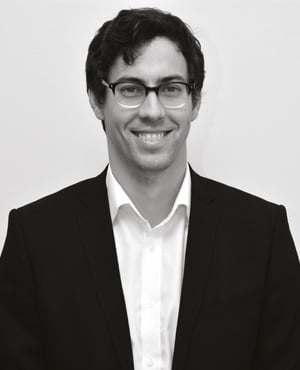
Every time that I visit a US university, I am struck by the absence of African students studying at the world’s leading economics departments.
In November, I was a visiting scholar at the Becker Friedman Institute, a generous offer to interact with some of the leading thinkers of our time.
I sat in workshops and had meetings with peers across different fields. One of the most memorable events was to listen to recent Nobel laureate Abhijit Banerjee discuss his latest book, Good Economics for Hard Times. Yet something was amiss.
There were almost no other African scholars – at least not in the economics departments or those institutions associated with the subject.
You would find several faculty and students from other developing countries, such as Colombia, Pakistan, Turkey and Thailand. However, not a single scholar from the African continent.
Perhaps this is just a Chicago problem? But it isn’t. I browsed through the job market candidates – the final year PhD students – at the top five economics departments, and of those that reveal their nationality, not one is from Africa.
This is not new. In countless conversations I’ve had with economics professors over the years, very few of them could recall ever supervising an African student. Those that did could count the number of students on one hand.
Why is it important? The world’s best economists are based in the US. Of the 40 most recent Nobel laureates, only three are not affiliated with a US university. Lists of top economics departments confirm this with between 14 and 17 of the world’s best departments based in the US.
People working in these departments are not all Americans, but they teach and do research in America. Banerjee was born in India and his Nobel co-recipient and wife, Esther Duflo, in France. If you want to be exposed to the frontiers of the field, you must study in the US.
The implication is that future African economists are not exposed to the best and brightest minds. This has consequences. Many of the students that graduate from these top departments remain in research departments in the US, informing the research agenda.
One of the talks I attended in Chicago was by Maisy Wong, a former PhD student in economics at MIT and now professor at the Wharton Real Estate department. Maisy’s mother grew up in an Indonesian slum. That’s why her research programme is aimed at probing the results of slum upgrades in Jakarta in the 1970s and 1980s.
The techniques, resources and networks Maisy required to undertake this study, namely paying two research assistants to walk around the city for two years and document the building heights, would not have been possible had she studied outside the US.
Combining the two fields of urban and development economics, Maisy’s work now informs the global research agenda. Maisy, with her expertise, consults on city urban development projects across the globe. Africa is one continent desperately in need of her skills.
Over the next decades, African cities will grow exponentially due to urbanisation and high fertility rates, creating massive urban slums. The allocation of public goods will be a huge challenge facing the continent’s local governments.
We need more African economists trained like Maisy to tackle these issues. Yet the next generation of African scholars will remain on the periphery of economics. Doctoral positions at the top schools are very competitive. You need to score within the top 1% of applicants in maths tests and it also helps to have a credible person that can vouch for your quality.
Thus, networks matter. With almost no African scholars at these top schools, there are few networks that can aid young scholars into these programmes. One exception is Leonard Wantchekon, a professor of politics and economics at Princeton.
He identified the gap between Africa and the US, and to get African students into US programmes. He built a new university in his home country of Benin – the African School for Economics – with the aim of equipping students with the skills to get into US programmes. So far, it has been a great success.
Not everyone can build their own university, though. There are other options. In South Africa we have several good economics departments. But more should be done. There is ample scope for a Winter School, where visiting scholars train prospective PhD students while also establishing stronger networks.
Students should consider doing a predoc in the US, where they spend six months to a year working as a research assistant for a tenured professor. This allows them to add to their skillset and establish stronger networks. The SA public and private sector should also invest.
Many students from developing countries that I meet study in the US on a Samsung or central bank scholarship. These sponsors know the value of long-term investment.
So, if you are an undergraduate student with the ability to both write well and do maths – and you are interested in tackling some of Africa’s biggest challenges, I implore you to consider a graduate degree in economics.
Not only that, if you are close to the top of the class, make it your mission to do a PhD in the US. The road is long, but the gains to you and the continent are bigger than you can ever imagine. (Also: send me an email.)
Johan Fourie is associate professor in economics at Stellenbosch University.
This article originally appeared in the 12 December edition of finweek. Buy and download the magazine here or subscribe to our newsletter here.




 Publications
Publications
 Partners
Partners











